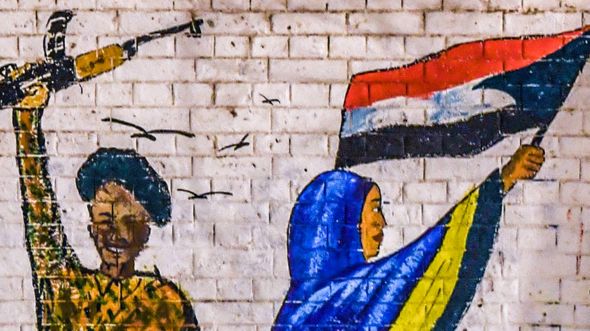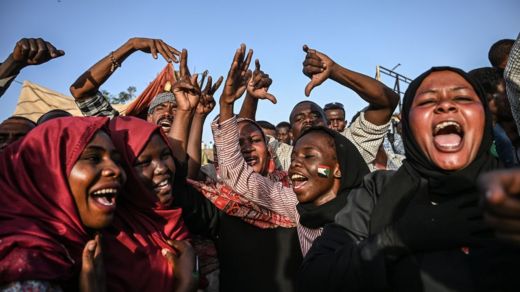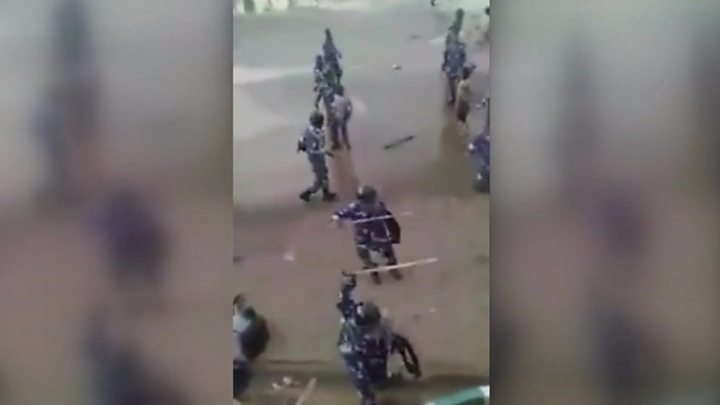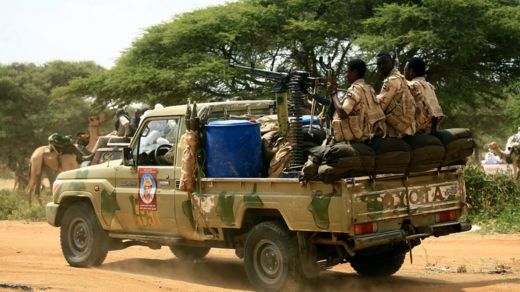Press Release - June 05, 2019
US, Norway, UK Joint Statement on Developments in Sudan
The text of the following statement was issued jointly by the Governments of the United States, Norway, and the United Kingdom
WASHINGTON D.C., United States of America, June 5, 2019/ -- The Troika condemns the violent attacks in Sudan on June 3, which resulted in the killing and injuring of many peaceful civilian protesters. By ordering these attacks, the Transitional Military Council has put the transition process and peace in Sudan in jeopardy. We call for an agreed transfer of power to a civilian-led government as demanded by the people of Sudan. We welcome the statement of the Chairperson of the African Union (AU) and support the important role of the AU in solving the crisis in Sudan, including its demand for an immediate handover to a civilian-led government.
The Troika also expresses its serious concern over the TMC’s announcement that it will cease negotiations with the Forces for Freedom and Change, retract all previous agreements with them on formation of an interim government, and will hold elections within nine months. The people of Sudan deserve an orderly transition, led by civilians, that can establish the conditions for free and fair elections, rather than have rushed elections imposed by the TMC’s security forces.
Distributed by APO Group on behalf of Africa Regional Media Hub.
SOURCE: Africa Regional Media Hub
https://www.africa-newsroom.com/press/joint-statement-on-developments-in-sudan9875?lang=en
- - -
Statement of AUC Chairperson on the situation in Sudan
June 03, 2019
03 June 2019, Addis Abeba: The Chairperson of the African Union Commission, Moussa Faki strongly condemns the violence that erupted today which led to reported deaths and several civilian injuries. In this regard, he calls for an immediate and transparent investigation in order to hold those all responsible accountable. The Chairperson calls on the Transitional Military Council to protect the civilians from further harm.
The Chairperson wishes to recall the African Union Peace and Security Council (AU PSC) Communique of 30 April 2019 on Sudan, which demanded all Sudanese stakeholders to return to the negotiations urgently in order to arrive at an inclusive accord, which paves the way for a civilian- led Transitional Authority.
Furthermore, the Chairperson calls on all international partners to reinforce common efforts towards the immediate cessation of the violence and rapid resumption of negotiations for a political settlement.
Given the tense situation in the country, the Chairperson calls on all concerned to exercise outmost restraint and to respect the rights of citizens, in the interest of the country and its people.
The Chairperson reiterates the African Union’s determination to continue to engage and accompany the Sudanese people to support the consolidation of a political agreement in line with the relevant AU Peace and Security Council decisions.
Ebba Kalondo
Spokesperson to the Chairperson
African Union Commission
African Union Commission
Addis Abeba
Mobile: +251911510512
Twitter:
Twitter:
@EbbaKalondo
https://twitter.com/EbbaKalondo
@AUC_MoussaFaki
@AUC_MoussaFaki
SOURCE:
- - -
African Union Peace and Security Council (AU PSC) Communique of 30 April 2019 on Sudan
To read AU PSC Communique PSC/PR/COMM.(DCCCXLVI) adopted by the Peace and Security Council at its 846th meeting held in Tunis, Tunisia on 30 April 2019, on the situation in The Sudan, click here:
Excerpt:
10. Reaffirms its respect for the sovereignty, unity and territorial integrity of The Sudan; and further reaffirms its support to the democratic transformation in The Sudan, in line with the communique of its 207th meeting held, at the level of Heads of State and Government in Abuja, Nigeria, on 29 October 2009; in this context, underlines the need for external actors to refrain from any action or initiatives that could further complicate the situation in The Sudan; and calls on all AU partners and the international community at large, to support AU ongoing efforts in The Sudan, bearing in mind the longstanding multifaceted challenges facing the country, including the urgent need to address the financial and economic problems;
- - -
Statement of AUC Chairperson on Sudan following visit by IGAD Chair June 08, 2019
Excerpts from the full statement June 08, 2019:I welcome the visit to Sudan by current IGAD Chair @PMEthiopia + the constructive meetings he held with the parties. IGAD and the AU will continue to work together to support the Sudanese people find a consensual agreement to the crisis. My full statementhttps://t.co/xs98fn2MSe— Moussa Faki Mahamat (@AUC_MoussaFaki) 8 June 2019
The Chairperson further wishes to express his deep appreciation for the close collaboration between IGAD and the AU Special Envoy Prof Mohamed El Hacen Lebatt and the Special Representative for Sudan Ambassador Mohamed Belaiche for their joint efforts in bringing parties to urgently resume negotiations.
In this regard, the Chairperson notes with satisfaction that the cooperation between IGAD and the AUC is firmly in line with the AU Peace and Security Council decision of 6 June 2019, and further reinforces the AU-led facilitation process to ensure that Africa continues to speak with one voice in its efforts to support the Sudanese people resolve the crisis in Sudan.
The Chairperson further stresses the need for all foreign actors to refrain from interference, and support the African Union efforts to support a Sudanese-led and and owned process that respects the will and aspirations of the people of Sudan, the region and the Continent.
- - -
The 68th Extraordinary Session of IGAD Council of Ministers opened in #Addisababa June 19, 2019
- - -The 68th Extraordinary Session of IGAD Council of Ministers opened in #Addisababa . Foreign Ministers of @igadsecretariat Members Countries discussed the situation in #Sudan & the progress of the implementation of the revitalized process in South Sudan. https://t.co/4RIeMJkYt2 pic.twitter.com/RiCbnvXsyl— MFA Ethiopia🇪🇹 (@mfaethiopia) 19 June 2019
Chairperson of the African Union Commission (AUC)
Photo: H.E. Moussa Faki Mahamat
Biography
H.E. Moussa Faki Mahamat, born on 21 June 1960, was elected as the African Union Commission (AUC) Chairperson on 30 January 2017 and assumed office in March 2017.
A constitutional lawyer by profession, Chairperson Faki has occupied senior governmental positions in a career that has spanned over 30 years and includes tenure as foreign minister and Prime Minister in his native country Chad.
At the continental level and during his tenure as Foreign Minister of Chad, H.E. Moussa Faki Mahamat chaired the United Nations Security Council for the month of December 2015. He also chaired the Peace and Security Council of the AU in September 2013 and steered the Nairobi Extraordinary Summit on the fight against Terrorism. He also served as chairman of the AU Executive Council.
Chairperson Faki has a formidable global reputation as a peace broker in Africa in a career that has placed a central focus on peace and security issues in Africa.
As Chairperson of the Commission, Chairperson Faki is the Chief Executive Officer, legal representative and Chief Accounting Officer. He is directly responsible to the Executive Council for the discharge of his duties.
Term Dates:
January 30, 2017 to January 30, 2021
Country of Origin:
Chad
SOURCE: https://au.int/en/cpauc5
- - -









